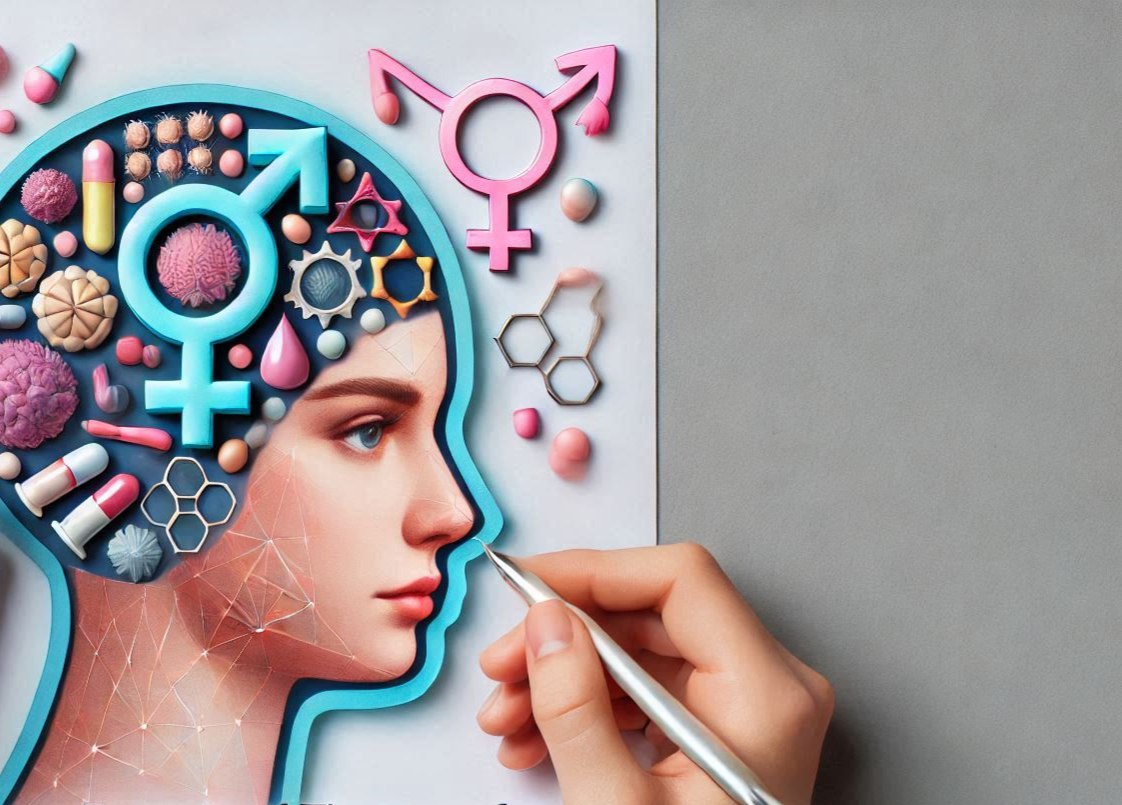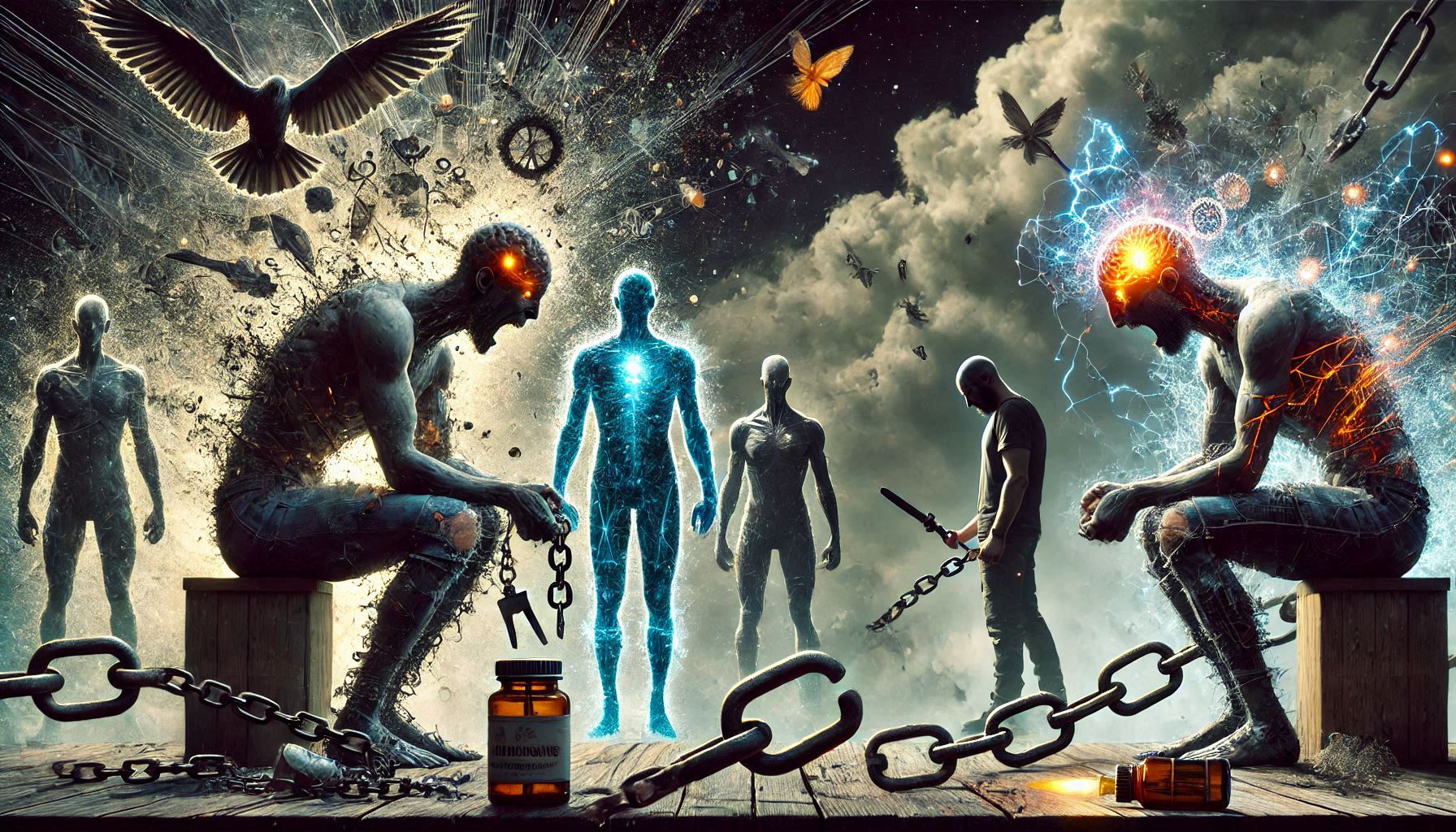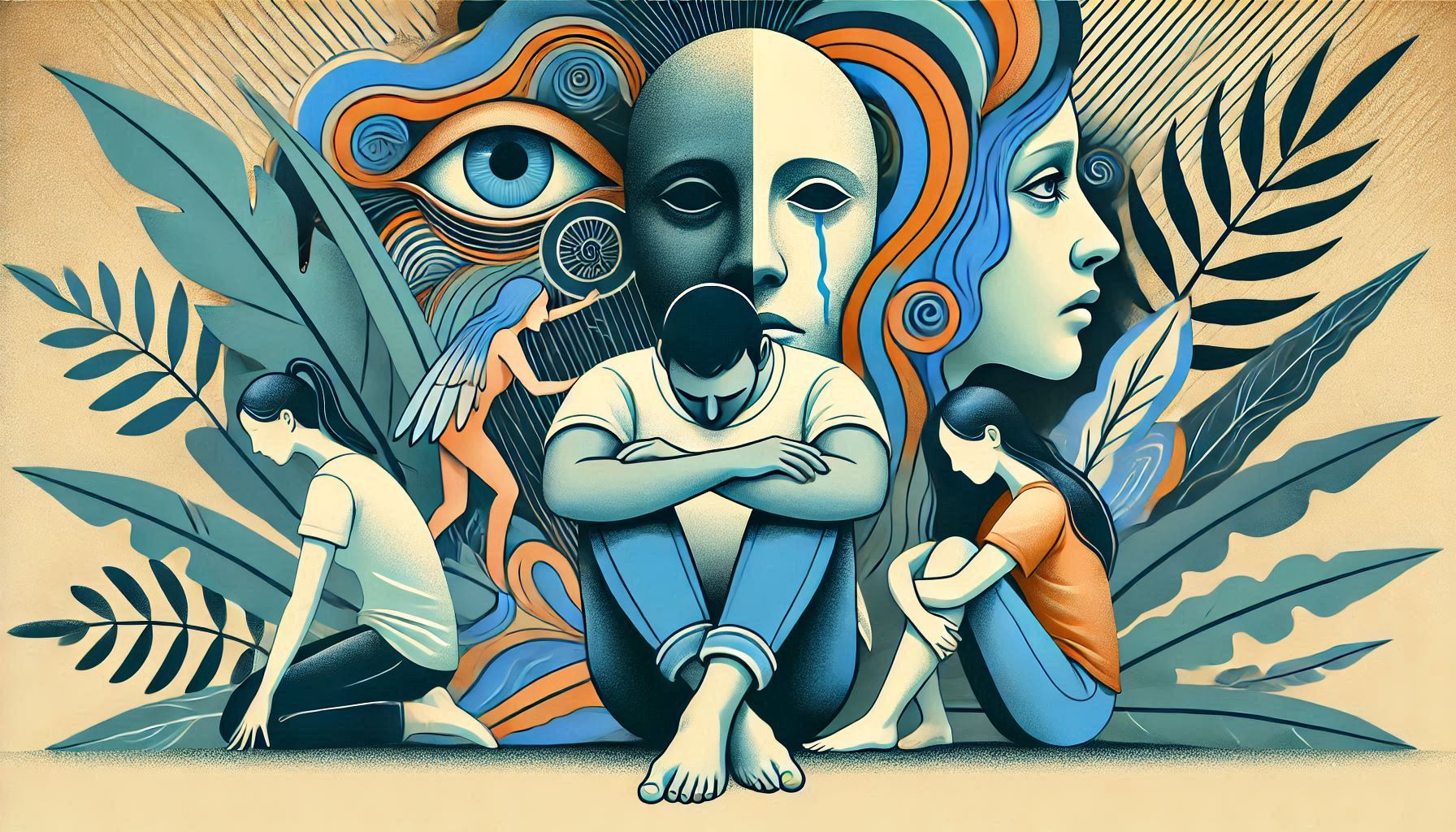Mental health disorders are complex, multifactorial conditions influenced by biological, psychological, and environmental factors. Among these, hormonal fluctuations are increasingly recognized as key contributors, particularly in gender-specific mental health disorders. Hormones—chemical messengers produced by various glands in the body—play a critical role in regulating mood, behavior, and cognition. When hormones are imbalanced or fluctuate due to life events such as puberty, pregnancy, or aging, they can trigger or exacerbate mental health conditions, including depression, anxiety, and mood swings.
In recent years, hormonal therapies have gained prominence as part of the treatment landscape for gender-specific mental health disorders. These therapies are designed to address the root cause—hormonal imbalances—by either supplementing or adjusting hormone levels. This guide delves into the science, applications, benefits, and risks of hormonal therapies for treating mental health disorders that disproportionately affect different genders, including premenstrual dysphoric disorder (PMDD), menopause-related depression, and andropause.
1. Understanding the Role of Hormones in Mental Health
Hormones and the Brain
Hormones affect a wide range of physiological processes, including metabolism, immune response, and reproduction. However, their impact on the brain is particularly important when discussing mental health. The brain contains hormone receptors that influence neurotransmitter activity, which in turn regulates mood, cognition, and behavior. For example, estrogen enhances the availability of serotonin, a neurotransmitter critical for mood regulation. Testosterone influences brain circuits involved in aggression, motivation, and reward, while progesterone has calming, anxiolytic properties.
Changes in hormone levels, particularly those associated with gender-related conditions, can disrupt the brain’s neurochemical balance, leading to a range of mental health symptoms.
The Role of Estrogen in Women’s Mental Health
Estrogen is one of the most influential hormones in women’s mental health. It is involved in regulating a wide variety of physiological processes, including the menstrual cycle, pregnancy, and bone health. Importantly, estrogen has significant effects on the brain. It modulates neurotransmitter systems such as serotonin, dopamine, and norepinephrine, all of which are involved in regulating mood and emotional responses.
Estrogen also helps in the formation of synapses in the brain and has protective effects on the neurons. However, fluctuations in estrogen levels, such as those occurring during puberty, pregnancy, and menopause, can have profound effects on mood and emotional stability. For instance, a drop in estrogen levels during perimenopause and menopause has been linked to depression, anxiety, and irritability.
The connection between estrogen and mental health is particularly apparent in conditions such as premenstrual dysphoric disorder (PMDD) and postpartum depression. In PMDD, severe mood disturbances like irritability, depression, and anxiety occur in the luteal phase of the menstrual cycle, when estrogen levels fall. Postpartum depression is thought to be triggered by a sharp drop in estrogen and progesterone levels after childbirth.
The Role of Testosterone in Men’s Mental Health
Testosterone is the primary male sex hormone, playing a pivotal role in regulating male reproduction, muscle mass, and bone density. Beyond these physical functions, testosterone is also essential for mental well-being. It influences brain regions responsible for motivation, aggression, and emotional regulation. Low testosterone levels can lead to mood disturbances, irritability, fatigue, and a lack of interest in life’s activities.
As men age, testosterone levels gradually decline—a phenomenon known as andropause, which is often compared to menopause in women. The symptoms of andropause are linked to this gradual decline in testosterone, and they can mirror symptoms of depression, including low mood, anxiety, and reduced libido. Testosterone replacement therapy (TRT) has shown promise in alleviating these symptoms and restoring a more youthful mental state.
Progesterone’s Role in Mental Health
Progesterone, primarily known for its role in regulating the menstrual cycle and supporting pregnancy, also plays a crucial role in maintaining mental health. It has mood-stabilizing properties, acting as a natural anxiolytic and reducing symptoms of anxiety and irritability. Low levels of progesterone, particularly during the luteal phase of the menstrual cycle, have been linked to mood disorders such as premenstrual syndrome (PMS) and PMDD.
Progesterone also plays a role in the development of postpartum depression (PPD). After childbirth, a dramatic decline in both estrogen and progesterone levels can trigger depressive symptoms, making women vulnerable to PPD. Research on progesterone therapies in the treatment of PPD has shown promising results, offering an avenue for more effective treatments.
2. Hormonal Therapies in the Treatment of Gender-Specific Mental Health Disorders
The use of hormonal therapies has become a cornerstone in treating several gender-specific mental health disorders. By targeting hormonal imbalances, these therapies not only address the underlying causes of the disorders but also help alleviate debilitating symptoms. In this section, we will explore the various hormonal therapies used to treat gender-specific mental health conditions, including estrogen replacement therapy, testosterone replacement therapy, and progesterone treatments.
Estrogen Therapy for Premenstrual Dysphoric Disorder and Menopause-Related Depression
Premenstrual Dysphoric Disorder (PMDD) is a severe form of premenstrual syndrome (PMS) that affects a small percentage of women. It involves extreme mood swings, irritability, fatigue, and severe depression, often leading to significant impairment in daily functioning. Estrogen therapy has emerged as a key treatment for managing PMDD symptoms.
A meta-analysis of several clinical studies found that women who received estrogen therapy experienced a significant reduction in PMDD symptoms, including mood swings, irritability, and depressive symptoms. This is believed to be due to estrogen’s influence on serotonin, which is critical for mood regulation. Estrogen therapy, when combined with selective serotonin reuptake inhibitors (SSRIs), has been found to be especially effective in reducing PMDD-related depression.
In addition to PMDD, estrogen therapy is often prescribed to women experiencing menopausal depression. As women approach menopause, estrogen levels decline, which can lead to mood disturbances, irritability, and anxiety. Estrogen replacement therapy (ERT) has been shown to improve mood, alleviate anxiety, and reduce other menopausal symptoms such as hot flashes and sleep disturbances.
A landmark study published in the Archives of General Psychiatry found that women who underwent estrogen replacement therapy experienced fewer depressive symptoms and had better overall mood stabilization than those who did not receive hormone therapy. This underscores the importance of estrogen in modulating mood and its role in treating menopause-related depression.
However, estrogen therapy is not without its risks. Long-term estrogen use has been linked to an increased risk of breast cancer and cardiovascular disease, particularly in postmenopausal women. As such, estrogen therapy should be used at the lowest effective dose for the shortest duration possible, and patients should be monitored for any adverse effects.
Testosterone Replacement Therapy for Andropause and Male Depression
Testosterone replacement therapy (TRT) is commonly prescribed to men experiencing andropause, a condition characterized by a gradual decline in testosterone levels. Andropause is often associated with symptoms such as low mood, irritability, fatigue, and a lack of motivation—symptoms that can be mistaken for depression. As testosterone levels decline, mood regulation becomes more difficult, leading to an increased susceptibility to depressive episodes.
Several clinical studies have investigated the use of TRT in men with low testosterone levels and depression. In one study, men who received testosterone replacement showed significant improvements in mood, motivation, and overall quality of life. Another study published in the Journal of Clinical Psychiatry found that men treated with testosterone reported fewer symptoms of depression and had better cognitive functioning.
Despite its benefits, TRT is not without risks. Some studies suggest that long-term testosterone use may increase the risk of cardiovascular events, such as heart attacks and strokes, particularly in older men with pre-existing heart conditions. Additionally, testosterone therapy can lead to sleep apnea, acne, and an increased risk of blood clots. It is also important to note that TRT may reduce sperm production, leading to infertility in some men.
As with estrogen therapy in women, testosterone therapy should be carefully managed to minimize risks and maximize benefits. Regular monitoring of testosterone levels, cardiovascular health, and overall well-being is essential for ensuring the safety and efficacy of TRT.
Progesterone Therapy for Postpartum Depression
Postpartum depression (PPD) is a serious mental health condition that affects up to 15% of women after childbirth. PPD is thought to be triggered by hormonal changes, particularly the rapid drop in estrogen and progesterone levels following delivery. These hormonal fluctuations can lead to significant mood disturbances, including feelings of sadness, hopelessness, and anxiety.
Progesterone therapy has emerged as a potential treatment for PPD, particularly for women with severe depressive symptoms. One such therapy is Brexanolone, a synthetic version of the progesterone metabolite allopregnanolone. Brexanolone was approved by the FDA in 2019 as the first drug specifically designed for the treatment of postpartum depression. Clinical trials demonstrated that Brexanolone was effective in reducing depressive symptoms within a matter of hours, offering rapid relief to new mothers struggling with severe PPD.
In addition to Brexanolone, other forms of progesterone and progesterone-like compounds are being explored for their ability to stabilize mood and reduce anxiety in women with PPD. Early studies suggest that progesterone therapy, when used in combination with other treatments like cognitive-behavioral therapy (CBT) or SSRIs, may offer a more comprehensive approach to managing PPD.
While progesterone therapy holds promise, more research is needed to fully understand its long-term effects and optimal dosing for treating postpartum depression.
3. Risks and Considerations in Hormonal Therapy
While hormonal therapies offer significant benefits in treating gender-specific mental health disorders, they are not without risks. Hormones affect numerous physiological systems, and any intervention designed to alter hormonal levels must be approached with caution.
Risks of Estrogen Therapy
Estrogen therapy can cause several side effects, including breast tenderness, headaches, nausea, and weight gain. Long-term estrogen use has been linked to an increased risk of breast cancer, endometrial cancer, and blood clots. For this reason, many healthcare providers recommend bioidentical hormones—hormones chemically identical to those produced by the human body—and advocate for estrogen therapy at the lowest effective dose.
Risks of Testosterone Therapy
Testosterone replacement therapy has its own set of risks. Long-term TRT may increase the risk of cardiovascular problems, such as heart attack and stroke, particularly in men over the age of 65. Sleep apnea is another concern, as testosterone can exacerbate this condition. TRT may also affect sperm production, reducing fertility. Moreover, TRT has been associated with acne and hair loss.
Monitoring and Personalized Treatment
To mitigate risks, hormonal therapies should be closely monitored through regular blood tests and check-ups. Personalized medicine is an important approach when prescribing hormonal treatments, ensuring that each patient receives a dose and type of hormone that is best suited for their individual needs.
4. The Future of Hormonal Therapies for Gender-Specific Mental Health Disorders
The future of hormonal therapies looks promising, particularly with ongoing research into safer, more effective treatments. Advances in personalized medicine and genetic testing will likely play a crucial role in developing hormonal therapies that are tailored to an individual’s unique profile, optimizing both efficacy and safety.
Additionally, new drugs and therapies are being developed to target hormonal imbalances with fewer side effects. For example, selective estrogen receptor modulators (SERMs) and selective progesterone receptor modulators (SPRMs) are being explored as alternatives to traditional hormone replacement therapies, offering targeted action with potentially fewer risks.
Conclusion
Hormonal therapies have significantly advanced the treatment of gender-specific mental health disorders, offering effective solutions for conditions like PMDD, menopause-related depression, and andropause. By addressing the hormonal imbalances that contribute to these mental health issues, these therapies help individuals restore emotional balance and enhance their overall quality of life.
While the benefits of hormonal treatments are clear, they come with potential risks that must be carefully managed. Hormonal therapies should be administered under close supervision, with regular monitoring to track progress and detect any side effects early. Personalized treatment plans, tailored to each individual’s unique hormonal profile, are essential to maximizing the effectiveness of these therapies while minimizing risks. A knowledgeable and experienced healthcare team plays a key role in ensuring that patients receive safe, effective care and guidance throughout their treatment journey. As research into the relationship between hormones and mental health continues to evolve, it is likely that hormonal therapies will become even more refined. With advancements in personalized medicine and ongoing clinical trials, future treatments may offer more targeted solutions with fewer side effects, providing lasting relief for individuals affected by gender-specific mental health disorders. The future of hormonal therapies holds promise for helping more people achieve sustained mental well-being.
SOURCES
Bauer, M., & Pfennig, A. (2017). The role of hormones in the pathophysiology of major depressive disorder. Journal of Clinical Psychiatry, 78(6), 7-14.
Bhatia, S. C., & Bhatia, S. K. (2019). Hormonal influences on mood disorders in men and women: A review. Psychiatric Times, 36(3), 15-20.
Bristow, B. P., & Thomsen, C. M. (2020). Estrogen and its role in the development of depressive symptoms in women. Frontiers in Neuroscience, 14, 40-50.
Ginsburg, C. S., & Klein, C. H. (2018). Hormone replacement therapy for women with depression and menopause: A review of the literature. Journal of Women’s Health, 27(2), 230-237.
Hunt, E., & Choi, K. W. (2016). Effects of testosterone replacement therapy on mood and quality of life in men with low testosterone levels. Journal of Clinical Endocrinology & Metabolism, 101(9), 3428-3434.
Kuehner, C. (2017). Why is depression more common among women than among men? The Lancet Psychiatry, 4(2), 146-158.
Langan, C. A., & Morrison, R. S. (2017). Role of progesterone and its metabolites in anxiety and mood regulation. International Journal of Molecular Sciences, 18(4), 767-776.
Mikolajewska, E., & Kowalska, M. (2018). Hormone replacement therapy for menopausal women with depressive symptoms: A systematic review. Menopause, 25(10), 1153-1160.
Schmidt, P. J., & Rubinow, D. R. (2018). Estrogen and mood disorders: A review of premenstrual syndrome and perimenopausal depression. Endocrinology, 159(1), 170-178.
Sherwin, B. B., & Gelfand, M. (2017). Estrogen and mood disorders: A review of the literature. Psychiatry and Neuroscience, 42(5), 338-343.
Stern, T. A., & Dorta, M. J. (2020). The role of testosterone in mental health disorders in men. Psychosomatics, 61(4), 343-351.
Vasilenko, R., & Armstrong, G. (2019). The impact of hormonal therapy on mental health: A review of clinical trials. American Journal of Psychiatry, 176(3), 295-302.
Wakil, A., & Wei, X. (2017). Estrogen replacement therapy for the treatment of mood disorders in menopausal women. The Journal of Menopausal Medicine, 23(2), 77-86.
West, J. L., & Cook, S. K. (2018). Testosterone therapy and mood improvement in men with low testosterone: A meta-analysis. International Journal of Urology, 25(8), 729-734.
Yehuda, R., & McEwen, B. S. (2016). Estrogen and cortisol: The role of hormonal fluctuations in mood disorders. Psychoneuroendocrinology, 63, 1-6.
HISTORY
Current Version
December 17, 2024
Written By:
SUMMIYAH MAHMOOD



